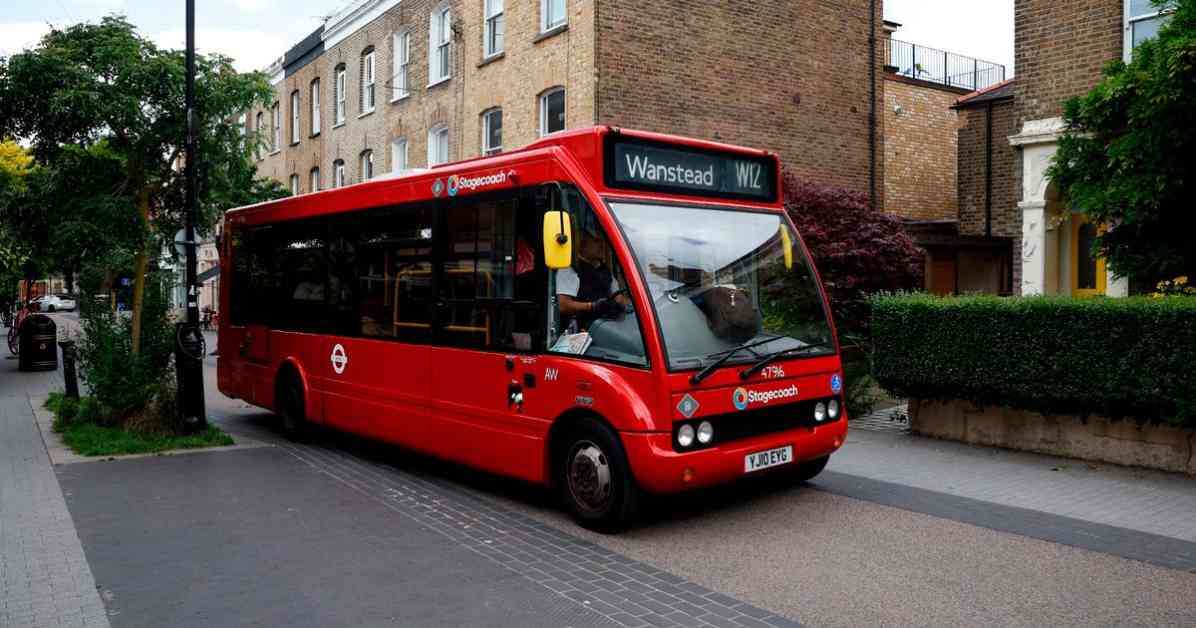London Bus Contracts for Small Operators: A Promising Yet Challenging Prospect
Amidst the recent news of smaller companies potentially taking on more London bus contracts, there is a mix of excitement and concern surrounding this shift in the transportation landscape. Sadiq Khan, the Mayor of London, has acknowledged the potential benefits of involving smaller operators in the bus network, but also highlighted some of the challenges that they may face.
The decision by Sullivan Buses to withdraw from operating its eight routes in August has brought the issue to the forefront, leaving their futures uncertain. The firm cited pressures on TfL’s funding and the increasing costs of service delivery as reasons for their withdrawal. This sudden development has prompted officials to seek out other operators to take over these routes, ensuring that commuters are not left stranded.
The Pros and Cons of Involving Small Operators
While the idea of increasing opportunities for smaller bus operators in London may seem appealing, there are both pros and cons to consider. On one hand, allowing smaller companies to participate in the bus network can bring about greater diversity and competition, potentially leading to improved services and more innovation.
Additionally, smaller operators may bring a unique perspective and a more localized approach to serving specific communities within London. This could result in tailored services that better meet the needs of residents in different areas of the city.
However, there are also downsides to awarding operation contracts to smaller firms. Sadiq Khan has pointed out that the expertise required to bid for a contract and run it effectively may pose a challenge for smaller operators. The mayor also highlighted concerns about the bureaucracy involved in the bidding process, which could further disadvantage smaller firms.
Labor London Assembly Member Elly Baker echoed these sentiments, noting that smaller bus operators face more risk in the market due to the dominance of larger transportation companies. She emphasized the importance of considering the specific circumstances that smaller operators may encounter and exploring ways to support their participation in the bus network.
TfL’s Role in Supporting Small Operators
In response to these concerns, Sadiq Khan has expressed a willingness to explore ways to make it easier for smaller operators to operate in London. He emphasized the need for TfL to be proactive in supporting smaller firms and ensuring that they have a fair chance to compete for bus contracts.
The mayor acknowledged the responsibility that TfL has to consider the interests of small companies and suggested that extra help could be provided to navigate the challenges of the bidding process. He also mentioned the possibility of bringing London’s buses under public operation, with TfL taking over contracts from private firms when they expire.
Moving Towards a More Inclusive Bus Network
As London continues to evolve and grow, the role of smaller bus operators in the city’s transportation system will be increasingly important. By creating a more inclusive and diverse bus network, London can better serve its residents and foster a culture of innovation and collaboration within the industry.
It is essential for policymakers, transportation officials, and industry stakeholders to work together to address the challenges and opportunities that smaller operators face. By supporting their participation in the bus network and removing barriers to entry, London can create a more dynamic and responsive transportation system that benefits everyone.
In Conclusion
The potential increase in London bus contracts for small operators presents both opportunities and challenges for the city’s transportation system. While there are clear benefits to involving smaller firms in the bus network, there are also obstacles that need to be addressed to ensure their success.
By promoting diversity, competition, and innovation within the industry, London can create a more inclusive and responsive bus network that meets the needs of its residents. With the support of policymakers, transportation officials, and industry stakeholders, small operators can play a vital role in shaping the future of London’s transportation system.












